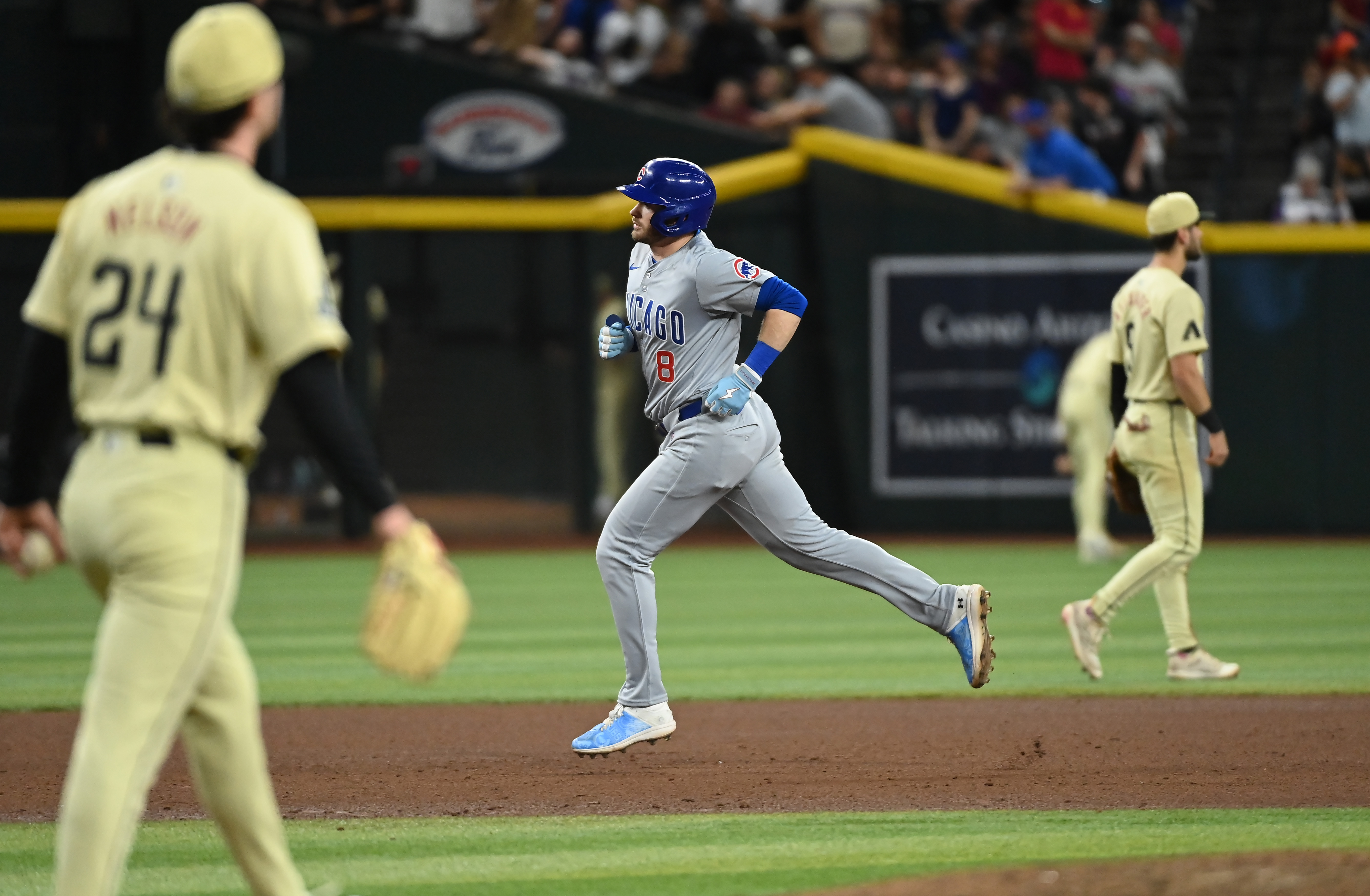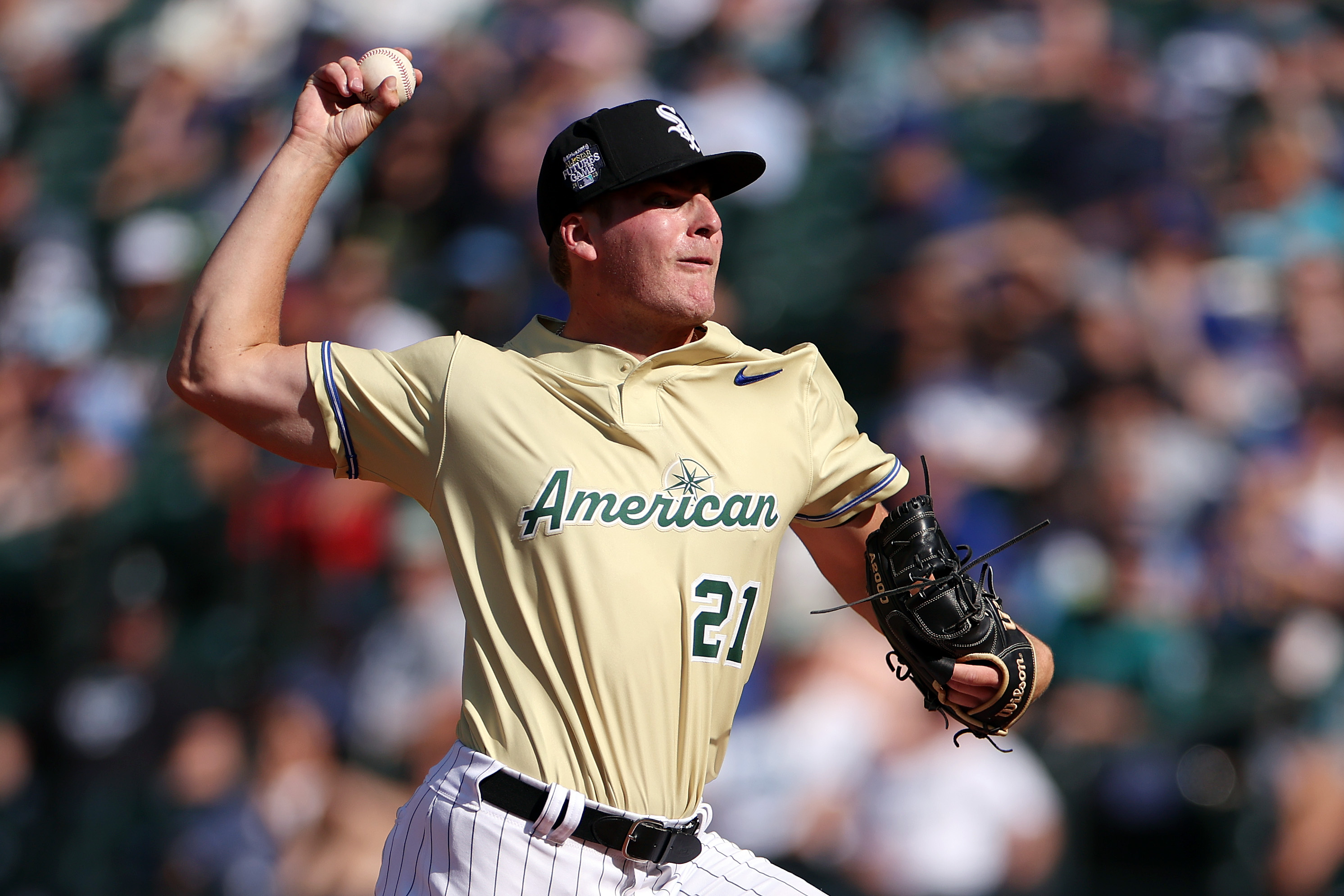On his way out of Wrigley Field Monday night, esteemed Chicago baseball curmudgeon Paul Sullivan tweeted a picture of a garbage truck backed up to a ballpark dumpster, taking out the trash.
It didn’t take reading the tweet to get the picture.
By the time the Cubs’ 10th consecutive loss devolved into a 13-3 blowout against the Phillies on Monday night, infielder Eric Sogard was on the mound for his third pitching appearance during the streak.
Stay in the game with the latest updates on your beloved Chicago sports teams! Sign up here for our All Access Daily newsletter.
Over the same 10 games, closer Craig Kimbrel has one.
That’s probably all you need to know to realize how far and fast the Cubs have descended since that combined no-hitter June 24 in Los Angeles.
But here's some more anyway: Their longest losing streak since a 12-gamer during a 101-loss 2012 season has sunk them from a first-place tie with the Brewers to just a half-game out of fourth place in the National League Central — their record under .500 for the first time since they were 19-20 on May 16 (and in fourth place).
And it actually looks worse than that with just six games before the All-Star break and barely three weeks to a trade deadline that all of a sudden has the Cubs’ roster looking like a clearance rack.
MLB
How could it look worse than the reality of all those losses and carnage in the standings?
The Cubs entered the game having scored two or fewer runs in 15 of their previous 20 games, and the only thing keeping that from becoming 16 of 21 was a two-out solo homer by Javy Báez in the eighth inning of what already was an eight-run game.
“It’s not fun. Let me tell you that,” Báez said of the longest losing streak of his career. “But we’re trying. Everybody’s mad. I’m mad about it. But the only thing I can do is come back tomorrow and try it again.”
The bottom line is that this team is already bottoming out.
Nobody in the Cubs’ clubhouse has been around long enough to remember a losing streak longer than this — not even Anthony Rizzo, who made his Cubs debut a month after that 12-gamer in 2012.
Which only leaves how much longer any of them will be around this month as the bigger question left to answer — whether the losing streak ends Tuesday or breaks the 24-year-old club record of 14 (16 if you want to get mean and count the last two losses of 1996 before the 1997 Cubs opened 0-14).
“To be honest, I don’t know what to tell you about this trade deadline,” Báez said. “I’m really not paying attention to it. If anything happens it would be a surprise to me.”
For him to be traded, maybe.
But it’s all but certain that Kimbrel will be moved by July 30 — the only question with him being whether he’ll be the first Cub since Jeff Samardzija in 2014 to make an All-Star team and get traded before the game.
Four-time All-Star Kris Bryant — the Cubs’ biggest homegrown star since Greg Maddux — could be the biggest impact hitter pursued this month if team president Jed Hoyer makes him available.
And a roster filled with more than a dozen more one-year contracts has been built for this moment since the season started.
When asked a few days ago when the club will decide its trade-deadline course, Hoyer told Chicago reporters in Cincinnati, “The honest answer to that is July 30.”
Bull.
Hoyer’s also the exec who joked about his intent to lie to the media this summer if asked about contracts and players’ statuses.
Whatever grain of truth there might have been in what he said over the weekend — when he also talked about being prepared for both directions — it’s gone now.
There’s no more room to waffle. Who these Cubs are this year in relation to the rest of the league, and consequently the direction they’re headed, is now as obvious as their inability to add to an early lead or to pitch well enough to beat a bad team at home Monday night.
“I definitely didn’t see this coming for sure,” manager David Ross said before the game — a few hours before getting ejected. “This is kind of out of nowhere with this group.”
But Ross never had the rotation to win big this year from the moment Yu Darvish was dumped in a trade over the winter, making the formula for staying competitive long enough to persuade the front office to add pitching at the deadline a matter of hitting like they did in May and leaning hard on a bullpen that was the best in the league for much of the first half.
Cracks that began showing by mid-June turned into a dam-burst by the 4th of July.
And now they’re sellers.
And Ross is just trying to bail enough to slow the sinking.
“You can’t get into each individual’s mind and what they’re thinking,” he said of the effort to focus enough on one day and avoid the temptation to try to make up for a long losing streak in one at-bat or one game.
“You start thinking narratives or contracts or trades or end of the season, losing the division, winning the division — all those things that can creep into your mind — it doesn’t do anything to beat the Phillies today,” he said. “So we have to continue to keep that mindset.”
Even if it's too late to avoid that truck backing up toward the building.


